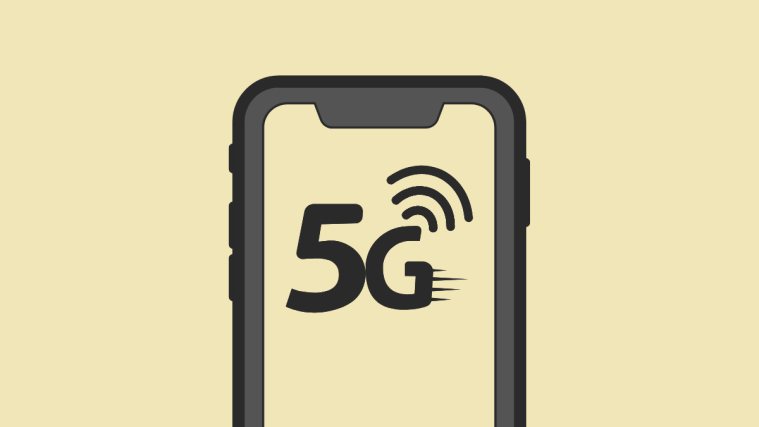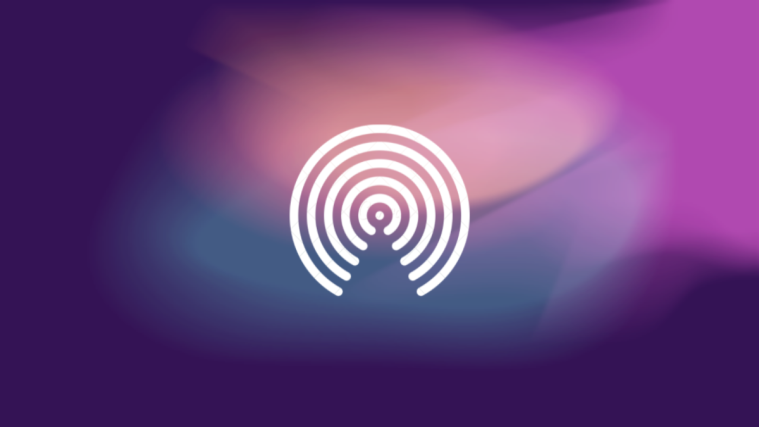Apple’s recent iPhones come with support for 5G mobile services and if you want to enable them on your device, the following post will help you do just that.
iPhones that support 5G
You can turn on and use the 5G network on iPhones that support 5G. The supported devices include:
- iPhone 12 series
- iPhone 13 series
- iPhone 14 series
- iPhone 15 series
- iPhone SE 3rd generation, and newer devices
How to turn on 5G on iPhone
To be able to turn on 5G, you need to make sure you have the following prerequisites:
- Your network provider offers 5G services
- You’re located in an area with good 5G coverage
- You have inserted the SIM card into your iPhone or have activated the eSIM
- You’re subscribed to a 5G mobile plan
Once you have the aforementioned requirements sorted out, you can proceed to turn on 5G on your iPhone.
- Open the Settings app first, and then select Mobile Data.

- Inside the Mobile Data screen, select Mobile Data Options.

- On the next screen, tap on Voice & Data.

- On the next screen, select either 5G On or 5G Auto to enable 5G on your iPhone.

5G On: When you select this option, your iPhone will stay connected to a 5G network as long as it’s available, even if it offers similar speeds as on 4G/LTE. You can select this in areas with moderate to high 5G coverage but it may affect your battery life.
5G Auto: When you select this option, your iPhone will use the Smart Data feature and connect to a 5G network if it offers better speeds and connectivity. If you get a similar experience on LTE, your iPhone will switch to a 4G/LTE network immediately. This option can be selected for areas with low 5G coverage and it doesn’t drastically reduce your battery levels.
If the area you are in has 5G coverage, you should be connected to a 5G network. When your iPhone is connected to a 5G network, you should see a 5G icon at the top right corner of the screen, provided that you have turned off Wi-Fi and enabled Mobile Data instead.
Related: Does iPhone 13 Have SIM Card?
How to turn off 5G on iPhone
Well, that’s simple, too. Simply use the guide above to go to Settings > Mobile Data > Mobile Data Options > Voice & Data, and then select LTE (as shown below).

Which carriers support 5G in the US?
Since its existence, support for 5G has grown in the past year and Apple’s iPhones now support 5G services across several regions including the US, UK, Australia, Europe, Africa, Asia, and the Middle East.
If you’re in the US, you can enroll on 5G from the following carriers – Alaska GCI, Altice Mobile, AT&T, Boost Infinite, Boost Mobile, C Spire, Carolina West Wireless, Cellcom Wisconsin, Consumer Cellular, Credo Mobile, Cricket, Metro by T-Mobile, Mint Mobile, PureTalk, Red Pocket, Spectrum, Sprint, T-Mobile, Ting, TracFone, US Cellular, Verizon Wireless, Visible, and Xfinity Mobile.
If you live elsewhere, you can check this Apple support page to check 5G availability in your region.
Why can’t I see the 5G icon in the status bar?
If you have enabled 5G inside the Settings app on your iPhone but still aren’t able to see the 5G icon in the status bar at the top, then it could be because of these reasons:
- You haven’t switched on Mobile Data: Apple doesn’t show the network connection type at the status bar if your iPhone isn’t connected to the Mobile Data for accessing the internet. If you’re connected to a Wi-Fi network, you will have to disconnect from it and turn on Mobile Data from the Control Centre. Now, you should see the 5G icon on the status bar at the top right corner.
- Your area doesn’t have 5G coverage: If you’re located in an area that only offers 4G connectivity, you won’t see the 5G icon on the status bar, since there’s no 5G network to connect to.
Related: How to Turn Off Shortcut Notifications on iPhone
What is 5G+ / 5G UW / 5G UC? Can you enable it yourself?
Depending on the network you’re a part of, you may see several variations of the 5G icon on your screen. Here are all of them:
- 5G: This is the original 5G icon that appears when your iPhone detects a 5G network from your service provider. This type of network is based on the regular Sub6-GHz band.
- 5G+: This is an upgraded version of 5G but it’s based on the mmWave band which offers a higher frequency. Most service providers like AT&T will show their mmWave networks as 5G+.
- 5G UW: 5G UW or 5G Ultra Wideband is the same as 5G+ but rebranded by Verizon to distinguish its mmWave offering.
- 5G UC: 5G UC or 5G Ultra Capacity is what T-Mobile calls its mmWave band network and is the same as 5G+ and 5G UW.
- 5G E: Unlike T-Mobile and Verizon, AT&T offers a third 5G offering in the form of 5G E or 5G Evolution. Although advertised as 5G, this type of network is based on 4G connectivity and is believed to be an enhanced version of 4G, not 5G in any way. This is evident from the fact that 5G E is supported even by older iPhone models like the iPhone 8.
That’s all you need to know about turning on 5G on an iPhone.
RELATED






